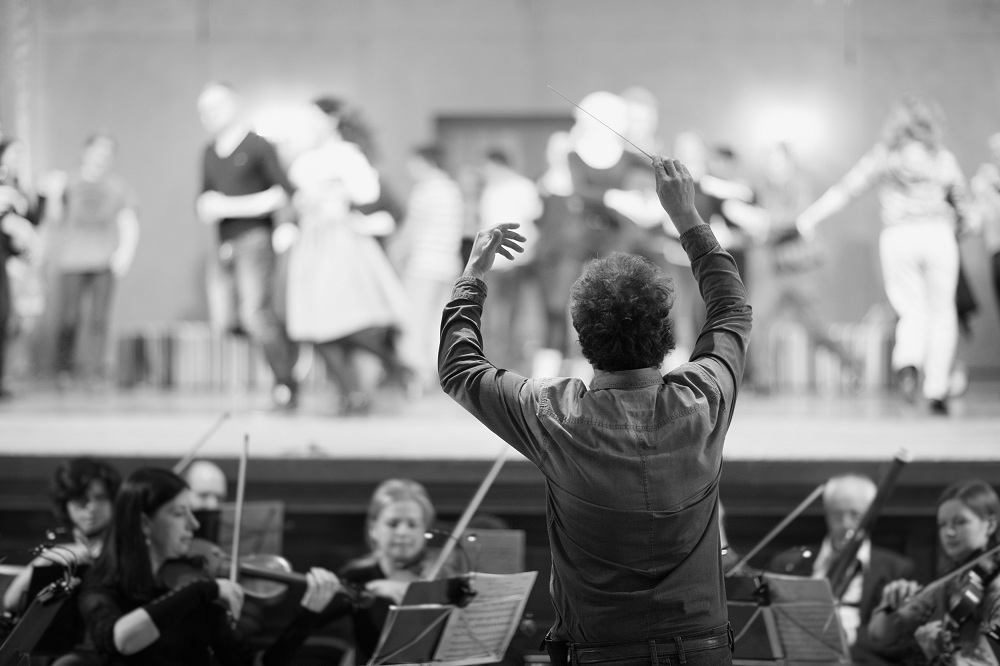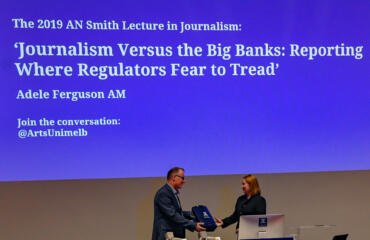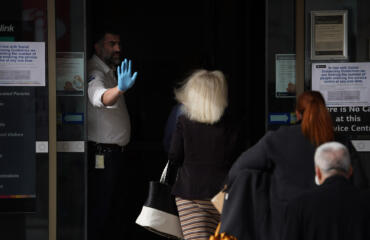‘I grew up in Mexico and I did my Masters in piano performance at the University of Texas. Back in my home country, I taught music to children with disabilities.
Since then, I’ve always wondered what would happen if those children wanted to be professional musicians. What challenges would they face? How would the world of classical music treat them?
After coming to grips with all theoretic aspects of my thesis, it was the interviews that were really fascinating. There’s not much research on disability studies and music; most of the research on disability focusses on the therapeutic aspects of performing music. So it was only through talking to disabled musicians that I really understood the barriers they face in classical music.

For instance, it’s almost impossible for blind students to find braille transcripts of music scores and music theory books, which makes it incredibly hard for them to reach the same level of knowledge and expertise as a non-disabled person.
Every person I spoke to said the difficulties were not only about accessibility; too often it was prejudice that got in their way. I talked to students in universities who were asked to leave the classroom because teachers thought they couldn’t participate in the proposed activities. Music students were told in their first lesson that their teacher couldn’t work them without special knowledge about their disability, even though their impairments had no impact on their ability to learn an instrument.
Extremely talented musicians, people who have won international competitions, would approach concert halls or cultural venues and be told they weren’t welcome. Yet less talented and qualified people were given that space.
Some of my participants also told me about leaving their countries on exchange programs and having real difficulty finding adequate places, in English-speaking countries, to live and study that could accommodate their disability.
I also interviewed musicians with schizophrenia. In fact, one of my fellow students in Mexico suffered from schizophrenia, but I didn’t know about his condition at the time. Like any mental illness, it’s one of those invisible disabilities. He’s an incredibly talented composer. He sees his illness as a source of creativity and part of his identity, but he has a lot of trouble socialising with other musicians.
We need everyone to pay attention to what disabled musicians are doing, to go to concerts performed by disabled musicians, listen to the music they compose, and collaborate with everyone who loves music. It’s so important that music is accessible to everyone.
Like any performer, musicians need a network of people to develop professional careers. In this particular case, even though he is a fantastic composer, his music is not often performed because he finds the social aspect so difficult.
This is the core fact of disability: limitations are not in the impairments themselves, they’re in the environments that systematically refuse to accommodate them.
Oppression of any group, whether it’s based on gender, race, social class or disability, it all comes from the same place of ignorance and fear of the unfamiliar. I feel very strongly that all minorities should support each other.
What I learned from my studies is how important it is for everyone to make music more inclusive. We need everyone to pay attention to what disabled musicians are doing, to go to concerts performed by disabled musicians, listen to the music they compose, and collaborate with everyone who loves music. It’s so important that music is accessible to everyone.
I also noticed the huge support disabled musicians gave to other people with disabilities. I talked to musicians with disabilities who would refuse to perform in spaces unless they were accessible to all people. I was often told how strange it felt to be the only person in a concert hall with a disability. Even if they could get on stage, sometimes they couldn’t get other people in their community into the hall to listen to them play.

Music, after all, is not just about the person on the stage. It’s about the person selling the tickets, the sound check guys, the piano tuner, the composer and, of course, the audience. How many disabled people participate in that process? Not enough.
We need more people with a disability to get involved. Even a performance by a non-disabled musician can do a lot to improve accessibility. We could, for instance, make sure that concerts have affordable tickets, make sure that people with disabilities get information about these events, make sure that concerts take place in accessible venues, and that service animals are welcomed.
Playing and participating in music has enormous benefits. It gives people an opportunity to express ideas that are not easily put into words and it’s a way of doing collaborative work that you can’t do in other forms. Nobody should be excluded from that.’
► Alejandro Téllez Vargas’ PhD is titled: ‘Able performers, defective audiences: disability and music performance.’
* My PhD is an irregular series in which The Citizen speaks with recent Melbourne University PhD graduates.



